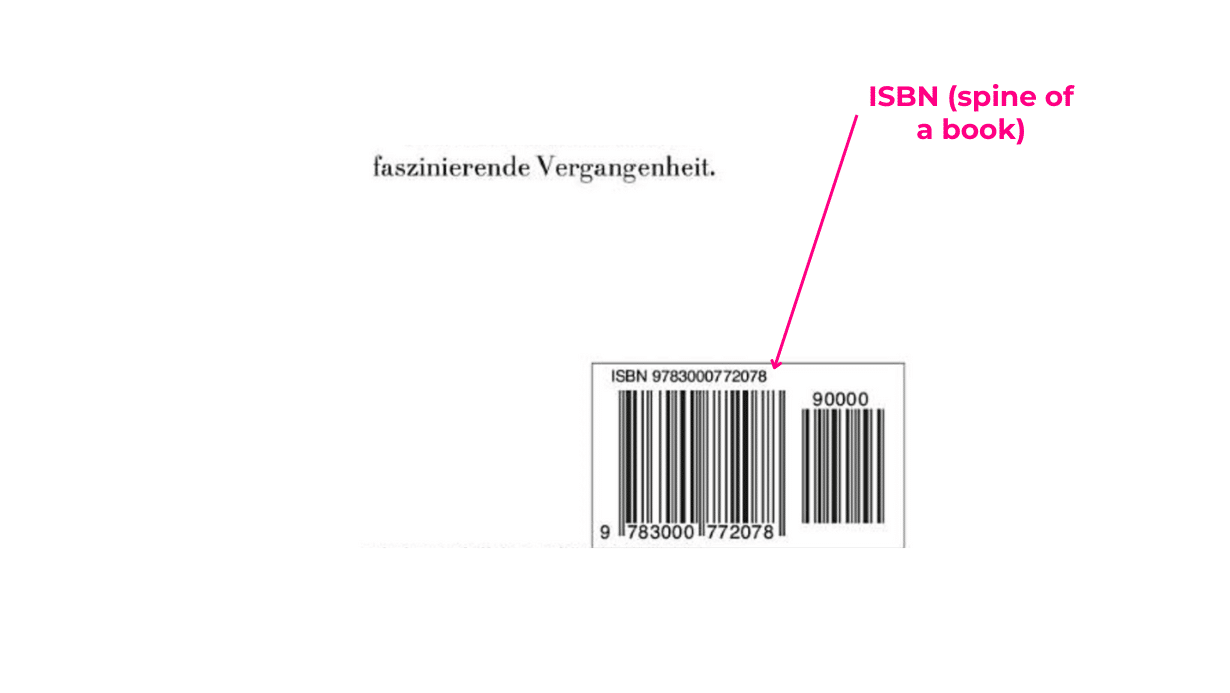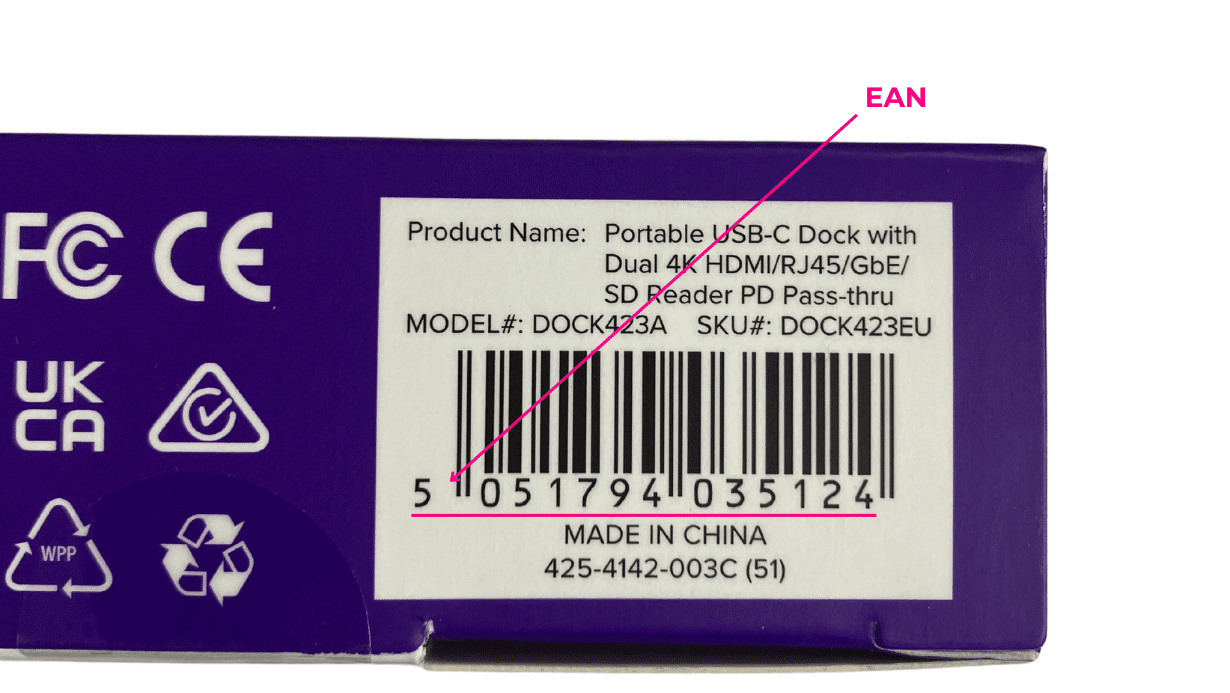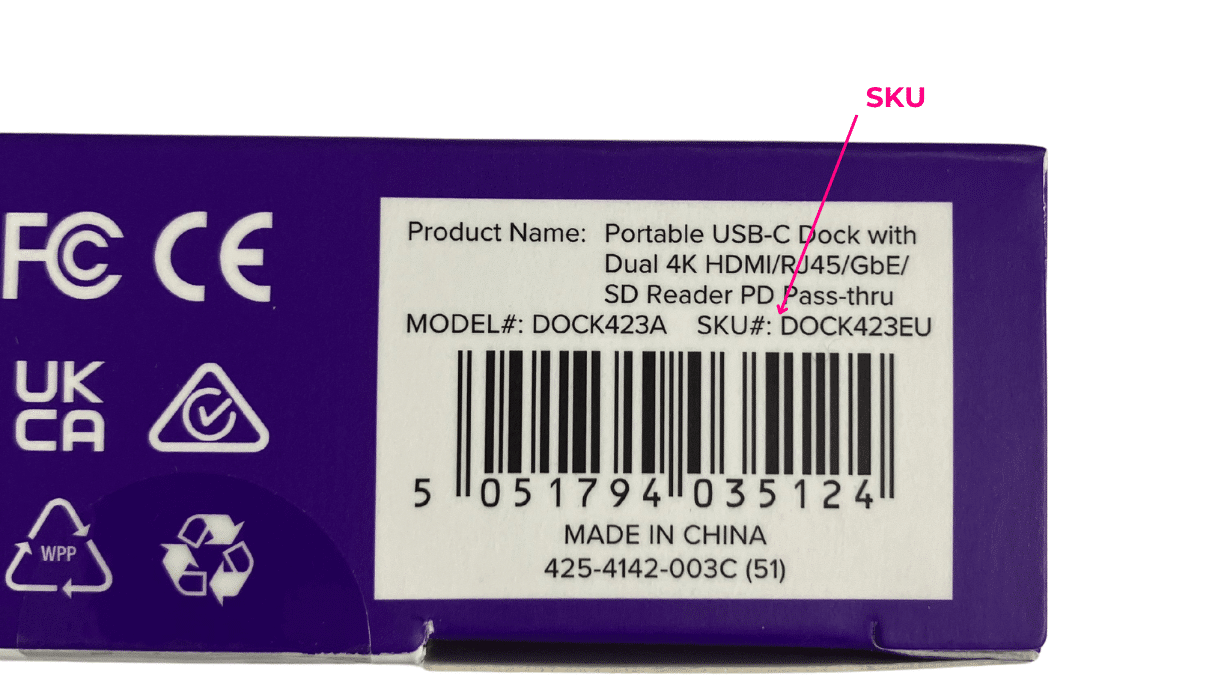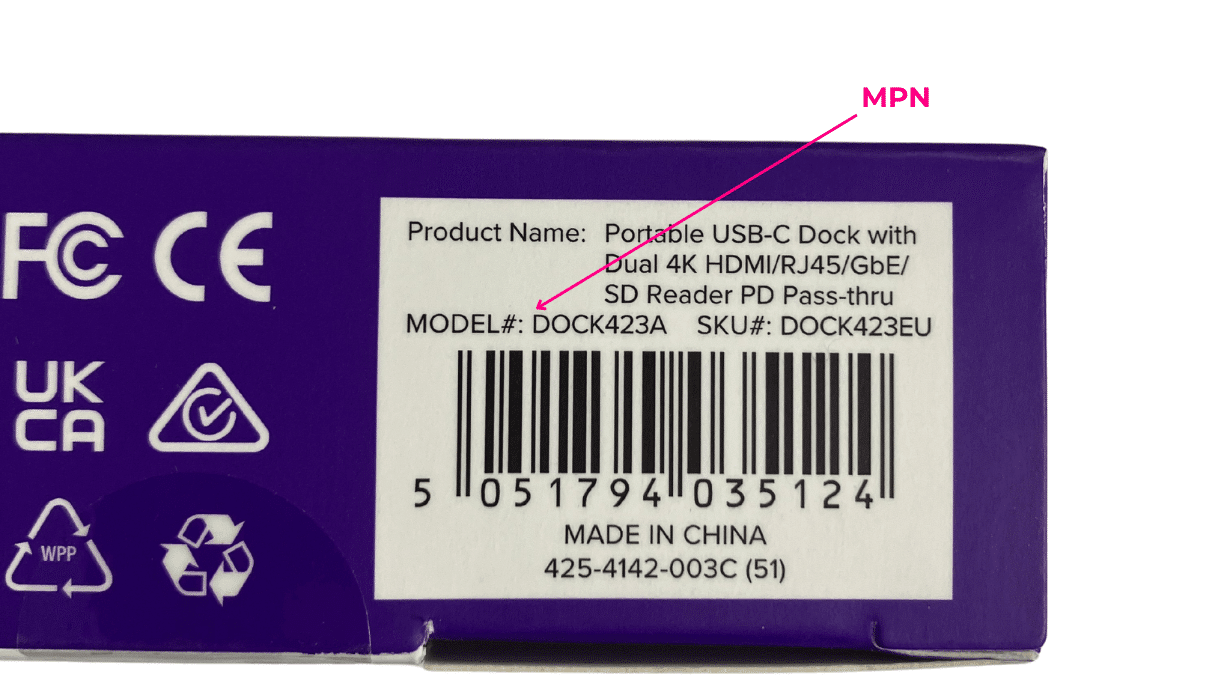Product Codes: A Comprehensive Guide
27/10/23
6'
Product codes are everywhere in shops and factories. They are super important for keeping track of items, counting how many are in stock, and figuring out sales. In this easy-to-understand guide, we’ll talk about what product codes are, the different kinds you might see, why they’re so important, and how businesses use them to make things run smoothly. Product codes are like secret keys that help businesses stay organized and know exactly what they’re selling.
What are Product Codes?
A product code is a unique identifier assigned to a product. It can be a series of numbers, letters, or a combination of both, designed to distinguish one item from another. These codes are essential for inventory management, facilitating efficient tracking and stocking of products in various industries.
Types of Product Codes
Product codes come in various formats, each serving specific purposes and industries. Understanding these different types can help businesses choose the most appropriate system for their products and operations.
GTIN (Global Trade Item Number) is an internationally recognized system for identifying products across global markets. It encompasses a family of GS1 (formerly known as the Global Standard) barcodes, including UPC, EAN, ISBN, and others. In certain cases, products can get a GTIN exemption. Let’s take a closer look.
Universal Product Codes (UPCs)
- Widespread use: UPCs are prevalent in the United States and Canada. They are a standard in retail for tracking trade items in stores.
- Format: A UPC consists of 12 numerical digits, which are uniquely assigned to each trade item.
- Barcode representation: The UPC is often represented as a barcode, which can be scanned at points of sale.
International Standard Book Number (ISBN)
- Specific purpose: ISBNs are exclusive to the publishing industry, used globally for books.
- Unique identification: Each ISBN identifies a book’s edition and publisher, and is unique to that specific title.
- Format variation: Initially a 10-digit code, the ISBN transitioned to a 13-digit format to increase capacity and compatibility with the EAN system.

European Article Number (EAN)
- Global standard: EANs are widely used outside North America and are similar to UPCs.
- 13-Digit code: The EAN consists of 13 digits, making it compatible with the UPC system but providing greater capacity.
- Retail and e-commerce: EANs are essential in global commerce, especially in e-commerce platforms that cater to an international customer base.

Stock Keeping Unit (SKU)
- Retailer-specific: Unlike UPCs and EANs, SKUs are unique to each retailer or company.
- Alphanumeric code: SKUs are typically alphanumeric and can vary in length. They are designed to help retailers internally track their inventory.
- Customizable: Retailers create their own SKU systems to track products based on a variety of attributes like color, size, style, and more.

Manufacturer Part Numbers (MPN)
- Manufacturer specific: MPNs are unique identifiers assigned by manufacturers to differentiate their products from competitors.
- Industry standards: Often used in conjunction with other product codes, MPNs help in maintaining industry standards and specifications.
Read more about the MPN Number.

Why Product Codes are Important
Streamlining inventory management
Product codes simplify inventory management, making it easier to track stock levels and organize warehouse space. By uniquely identifying each item, they enable quick stock assessments and efficient storage organization, helping retailers keep pace with customer demands and avoid overstocking or understocking issues.
Enhancing sales tracking and analysis
Product codes are vital at the point of sale, providing insights into sales trends and customer preferences. This information helps brands and retailers understand which products are popular, guiding stock replenishment, marketing strategies, and product development decisions.
Facilitating efficient product recalls
In the event of a product recall, product codes allow for the quick identification of affected items, ensuring a swift and organized response. This is crucial for maintaining public safety and preserving customer trust.
Improving customer experience
For customers, product codes mean quicker checkouts and easier product searches, whether in-store or online. They also provide access to detailed product information, enhancing the shopping experience and aiding in informed purchasing decisions.
Supporting global trade
Standardized product codes like UPCs and EANs facilitate international trade. They streamline the listing and sale of products across different countries and e-commerce platforms, easing logistics and customs processes for global business operations.
Implementing Product Codes
Implementing product codes effectively is a strategic process that involves several key steps, each contributing to the overall efficiency and accuracy of a business’s operations.
Choosing the right type of product code
- Product and industry specifics: The first step is selecting the type of product code that aligns with the nature of the products, industry norms, and requirements. For example, retail businesses typically use UPCs for general products, while booksellers use ISBNs.
- Geographical considerations: Consideration of the geographical market is also crucial. For instance, EANs are more common in Europe, while UPCs are prevalent in North America.
- Future scalability: Businesses should also consider future growth and scalability when choosing a product code type, ensuring that the system they adopt can accommodate expansion into new markets or product lines.
Investing in the right technology
- Scanning and processing equipment: Implementing the appropriate technology to scan and process these codes is crucial. This includes investing in barcode scanners, point-of-sale (POS) systems, and other related hardware.
- Software systems: Equally important is the adoption of inventory management and data analysis software that can integrate with these codes. These systems should be capable of accurately tracking inventory levels, sales, and customer preferences.
- Integration with existing systems: The chosen technology should seamlessly integrate with existing systems to ensure smooth operations and avoid data silos.
Training and compliance
- Employee training: Educating staff on how to use scanning equipment and how to interpret product codes is essential. This includes understanding different code types, handling errors, and understanding the linkage between these codes and inventory management systems.
- Compliance with standards: Sellers must also ensure compliance with industry standards related to product coding. This involves staying updated with changes in coding practices and regulations, especially in industries with stringent compliance requirements.
Leveraging data for business insights
- Data-driven strategies: The data collected from product codes is a goldmine for insights. Analyzing this data can reveal trends in sales, customer preferences, and inventory turnover.
- Operational improvements: Insights derived from product code data can lead to operational improvements, such as optimizing stock levels, refining product placement strategies, and enhancing supply chain efficiency.
- Predictive analysis: Advanced data analysis can also enable predictive modeling, helping businesses forecast future trends and prepare accordingly.
Product Code FAQ
How to Find the Product Batch Code?
A product batch code, often printed on the packaging, is a series of letters, numbers, or a combination of both that identifies when and where a product was manufactured. To find it, check the packaging for a small stamped area, typically near the expiration date or at the bottom of the product. If you’re having difficulty, the manufacturer’s website or customer service can provide guidance.
Do You Have Universal Product Codes on Amazon?
Yes, Amazon uses Universal Product Codes (UPCs) to track inventory and list products. When sellers list a new product on Amazon, they are often required to provide a UPC. This ensures each product is unique and helps in efficient catalog management, making it easier for customers to find and purchase products on the platform.
Your e-commerce library
E-commerce for Retailers
Learn moreE-commerce for Brands
Learn moreL'Oréal Luxe Success Story
Learn moreSign up for our newsletter
By submitting this form you authorize Lengow to process your data for the purpose of sending you Lengow newsletters . You have the right to access, rectify and delete this data, to oppose its processing, to limit its use, to render it portable and to define the guidelines relating to its fate in the event of death. You can exercise these rights at any time by writing to dpo@lengow.com

Trending Posts
Marketing channels
Where does Gen Z shop online?
Gen Z online shopping is transforming the digital marketplace, setting trends that redefine what it means to engage with brands…
16/04/24
9'
Marketplaces
The Top 10 Marketplaces in Europe
The e-commerce scene is a vibrant mix of marketplaces in Europe. These aren't just websites; they're bustling hubs where millions…
08/12/23
7'
Marketplaces
Lengow Now Fully Supports Zalando Logistics Solutions ZSS and ZRS
Zalando, one of Europe’s leading fashion marketplaces, continues to raise the bar with its advanced logistics and fulfillment programs. After…
12/12/24
4'
Marketplaces
How to win the Buy Box on Marketplaces (Amazon, Zalando, etc.)
What is the most important thing for marketplace sellers? Exactly, the Buy Box! If you don't have the Buy Box…
02/04/24
10'
Marketplaces
How to Sell on Temu? Best Tips
Emerging under the vast umbrella of PDD Holdings Inc., Temu has skyrocketed in popularity as a shopping sensation from China…
17/08/23
5'




